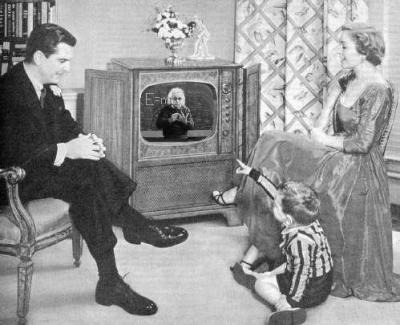
On days like today, I just don't know if I have anything left for cyber space.
Back in the day, aka, before I lived in Chicago, I liked to blog as much as possible. I liked skimming through news wires and scouring websites for things to read and ruminate on and write about. I liked to imagine that these things I jotted down would somehow start revolutions in small towns like Lewistown and Lake Geneva. I liked communicating, even if it was only to a few friends. I liked to write for the sake of writing, all else be damned.
Now, I can't decide. I've been reading so much about so many things lately that the actual thinking takes place so fast that I move on in minutes. Not nearly enough time to sit down and write about them. But mostly, I just want to talk about things with real people. Like my roommate, or neighbor friends, or people I work with. I'm tired of these endless internet conversations. Idle chatter. Vague witless posturing. Blah blah bitty blah. I'm doing it again. Right now. As I type.
I was reading an article in a magazine recently about how voice software and podcasts could be the deathknell of the printed, written word. As if Gutenberg's little project was only a blip on that great big radar of fads. And mostly, it made me want to stand up and tell the magazine to fuck off. So I did. (Well, not the standing up part, that would have been a bit too dramatic, I think.)
Thing is, I don't want there to be an end to the written word. Especially the printed word. I want to be true to books, thick with worn paper and familiar smells, for as long as we both shall live. I want words of mine, to find themselves onto those pages someday. Pages with bindings, and engraved title pages, and fonts not seen 1874.
And there I go again. On so many different levels.
No big truths here. No lessons to live by. No advice for future newlyweds. No parting shots or words of wisdom. Just these things.
Besides, lessons are overrated. And points do more to hide the truth than they can ever hope to reveal.
As for you and me, let's talk again. Or at the very least, write letters.
Sunday, February 26, 2006
Night Shift Lullaby
Posted by
jonny
at
11:03 PM
1 comments
![]()
Saturday, February 18, 2006
The Mongoose Has Left The Building

Go ahead and add Camp Michindoh to the growing list of evangelical institutions I've lost confidence in.
I've blogged before about my losing battles NRB, ETS and Focus on the Family. And I've written down my current doubts about Huntington University, too. But that old camp in Hillsdale, MI just got thrown in with the rest. A friend of mine was recently let go from Michindoh for some objectionable blog content on his xanga. And though I won't get into the thick of it (go here for my initial xanga-thoughts last week), I did want to add just a few things.
Even though I don't have much trust for the current administration over at Michindoh, I still don't hold any ill will for their summer camp program. It might not be the old Tom Roots affair it once was, but it's still alive, it's sill kickin', and it still needs good young men and women to make it one of the best programs of its kind in the Midwest. Michindoh sees hundreds of kids every summer come through that front entrance on East Bacon Road, and it shouldn't matter if the CEO is a buffoon -- that program, and the rest of Michindoh, still serves a greater purpose.
So go forth and counsel, you know? Just don't expect me to shed any tears the day Mr. M. finally leaves Michindoh Ministries. It's about time someone new took the helm of that place anyway. Let's just pray it's someone with a little more heart for ministry, and a little more brains for business. Because Lord knows Michindoh could use both these days.
Posted by
jonny
at
2:09 PM
2
comments
![]()
Wednesday, February 15, 2006
China, China, Everywhere!

China has been all over the news recently -- mostly for free speech abuses. Even though the Chinese constitution officially offers protection of free speech, the Chinese government in Beijing has never done much to protect those rights, as evidenced by recent events in China and the U.S.
First off are accusations against internet giants Yahoo, Microsoft, AOL and Google for censuring the results of their search engines in China. Searches for democracy, Chinese dissidents or references to Tiananmen Square and Tibetan independence are filtered out of search results. Google alone was able to retain a warning telling users when results have been blocked. Google also refuses to provide Chinese users with email accounts and blogs, after reports that Yahoo helped Beijing locate two of its users who used Yahoo to post criticisms of the Chinese government. Both men are serving prison time in China for "uncovering state secrets."
Meanwhile, just yesterday, a group of Communist Party elders and scholars in China published a report criticizing Beijing for its heavy-handed control of the Chinese media. The report offered support for Freezing Point, a weekly supplement to the Communist Party published China Youth Daily newspaper, which was recently ordered to shut down by the Communist Party Propaganda Department. The report called on Chinese President Hu Jintao to stop unconstitutional and illegal repressions of free speech in the Chinese media.
"This constitutes a violation of the constitution," the report said. "In order to control public opinion, they have diminished freedom of speech, made blacklists, and conducted secret investigations. These deeds are ridiculous and rude and totally beyond the boundaries of law."
Officially, the Chinese government claims to only block pornographic or terrorist-related websites. Liu Zhengrong, of the Internet Affairs Bureau of the State Council Information Office, has been quoted as saying, "No one in China has been arrested simply because he or she said something on the Internet....After studying Internet legislation in the West, I've found we basically have identical legislative objectives and principles."
The BBC is quick to point out, however, that there website is still blocked in China.
Finally, dissident critics of the Chinese government have claimed harassment even outside the borders of China. Falun Gong, a spiritual movement extremely critical of Chinese religious and political oppression, says its members have been harassed in South Africa, Hong Kong, Australia, and now the United States.
Peter Yuan Li, a naturalized U.S. citizen, was beaten, tied up and blindfolded in his own home in suburban Atlanta by three Asian men. The men stole two of his laptops, phone and wallet, but left other valuables like his TV and camcorder. Li is a member of Falun Gong, and works for the Web site of the Falun Gong-affiliated newspaper The Epoch Times.
The Chinese government calls The Epoch Times "a propaganda machine of the evil cult," though it denies any involvement with the attack on Li's home. The FBI refuses to comment whether or not they suspect if Beijing was involved.
Just what we need. A little more government stonewalling.
I can't get enough!
Posted by
jonny
at
5:41 PM
0
comments
![]()
Wednesday, February 08, 2006
Baptist City, Population 16.4 Million

The old school Baptists are having a rough go of it lately. Not only do the Southern Baptists dominate the cultural conversation in America, they dominate church attendance rolls, too, claiming some 16.4 million members. The Baptist denomination my parents grew up in, the American Baptists, has only 1.4 million members, not many of which can be found in the South.
An excerpt from the AP article, which focuses mainly on Baptist congregations in Rhode island:
[J. Stanley] Lemons, the First Baptist historian, is more blunt about the split. He says it upsets him to hear religious figures such as the Rev. Pat Robertson, a Southern Baptist minister, say God will forsake those who oppose teaching "intelligent design" in public schools -- which Lemons views as a violation of [Roger] Williams' unwavering support for church-state separation.For info on Roger Williams, my favorite, crazy Baptist, wikipediathis!"For these guys to talk about a Christian nation," he said, "Williams would go up in smoke."
Posted by
jonny
at
10:48 AM
0
comments
![]()
Wednesday, February 01, 2006
States! Unions! Forever!!

Why George W. Bush can't balance his budget.
The best way to address the deficit and move toward a balanced budget is to encourage economic growth and to show some spending discipline in Washington, D.C.
--President Bush, 2006 State of the Union Address
Spending discipline. This from the same president who pushed for the Medicare Prescription Drug, Improvement and Modernization Act -- a spending bill that will add some $535 billion to the cost of Medicare over the next 10 years. Not to mention that 20 years out, as an aging baby boom generation needs the program, budget estimates put the cost at well over $4.5 trillion dollars. Mr. Bush has yet to mention how the government will pay for this plan. And because the bulk of the cost will come long after he leaves office, what the president likes to leave out is that promised benefits can only come from massive cuts in education or national defense (or an enormous hike in taxes).
What's telling is how quickly President Bush was able to squander the budget surplus we had just six years ago. When the president took office, the ten-year budget surplus was projected at $5.6 trillion by the CBO (the Congressional Budget Office, or the accounting arm of Congress). By August of 2003, the CBO projected a ten-year deficit of $1.4 trillion. If the tax cuts are made permanent, as Mr. Bush plans to do, the ten-year deficit grows to $6.0 trillion ($6,000,000,000,000 with all the zeros). That means that by 2014, there will be a extra $90,000 of federal debt for every family in America.
It must be said that Mr. Bush took office right before the economic storms of a recession and the bursting of the stock market bubble, not to mention the chaos following 9/11. Yet the Concord Coalition, a bipartisan think-tank of budget hawks and conservative economists, estimates that at least one-third of this $10 trillion swing in the budget (from a $5.6 trillion surplus to a $6 trillion deficit) can be accounted for by the Bush tax cuts.
Our president promised in 2003 to spend whatever it takes to get the job done in Iraq and Afghanistan. So while American lives are sacrificed to bring democracy to the Middle East, Mr. Bush has never once asked the rest of America to sacrifice their hard-earned money to make this possible. In fact, he has rewarded Americans, again and again, with tax cuts -- blood money as it were, to keep the faithful in line behind an unpopular war.
Why tax cuts are a moral issue.
If this tax relief is good for Americans three or five or seven years from now, it is even better for Americans today.
--President Bush, 2006 State of the Union Address
Bush's reasons for the tax cuts change when the occasion suits him. In 2001, before the effects of the recession were in full swing, the tax cuts were needed to give Americans back part of the projected budget surplus. In 2002, while the recession was very much a reality, the tax cuts were needed to kick start the sluggish economy. And since 2003, the tax cuts have been needed, according to Mr. Bush, to provide long-term incentives for economic growth.
I have no problem with the tax cuts of 2002, needed to provide relief for a slow economy. Temporary tax cuts in times of recession can be a boon to consumers who cannot or will not spend, freeing cash to speed up sluggish growth. However, the president's original tax cuts might better have been used to fund the growing cost of Medicaid. And the tax cuts on the table today, for "long-term growth", have no basis in sensible economics -- especially with a brand-new drug prescription plan that will cost us some $2.5 trillion dollars over the next 20 years.
Conservative economist Milton Friedman (a budget hawk if there ever was one) believed that permanent tax cuts were only a good idea if they were accompanied by permanent cuts in spending. Economists of all stripes agree that you cannot cut taxes in any permanent way if you do not cut long-term spending. This simply means that tax cuts without spending cuts will only shift the burden of taxes to future generations.
This is why tax cuts are a moral issue. Permanent tax cuts only shift the sacrifice from today's generations to the generations of tomorrow. Meaning that you and your children will be forced to pay higher taxes in the not-so-distant future, to pay for Bush's tax cuts today. The only other option is massive spending cuts in education, the military, homeland defense and social security/health benefits for the aged -- leaving children, the elderly and our nation's security out to dry.
The good news is that there are ways to avoid this future. Doing away with Mr. Bush's tax cuts -- especially at a time when the economy is recovering -- is a good start. Reforming social security, health care and sky-rocketing budget spending are all vital steps as well. What we need is a national figure who will ask Americans to give up some minor comforts today, in order to secure the rights of our children tomorrow.
Unfortunately, our president is not one such leader. Mr. Bush should be ashamed for refusing to recognize the blatant immorality of his reckless tax cutting and slipshod budgetary spending. It's not simply voodoo economics; it's just plain wrong. And the American people have a responsibility to call him out on it.
Sources:
Posted by
jonny
at
7:51 PM
2
comments
![]()



